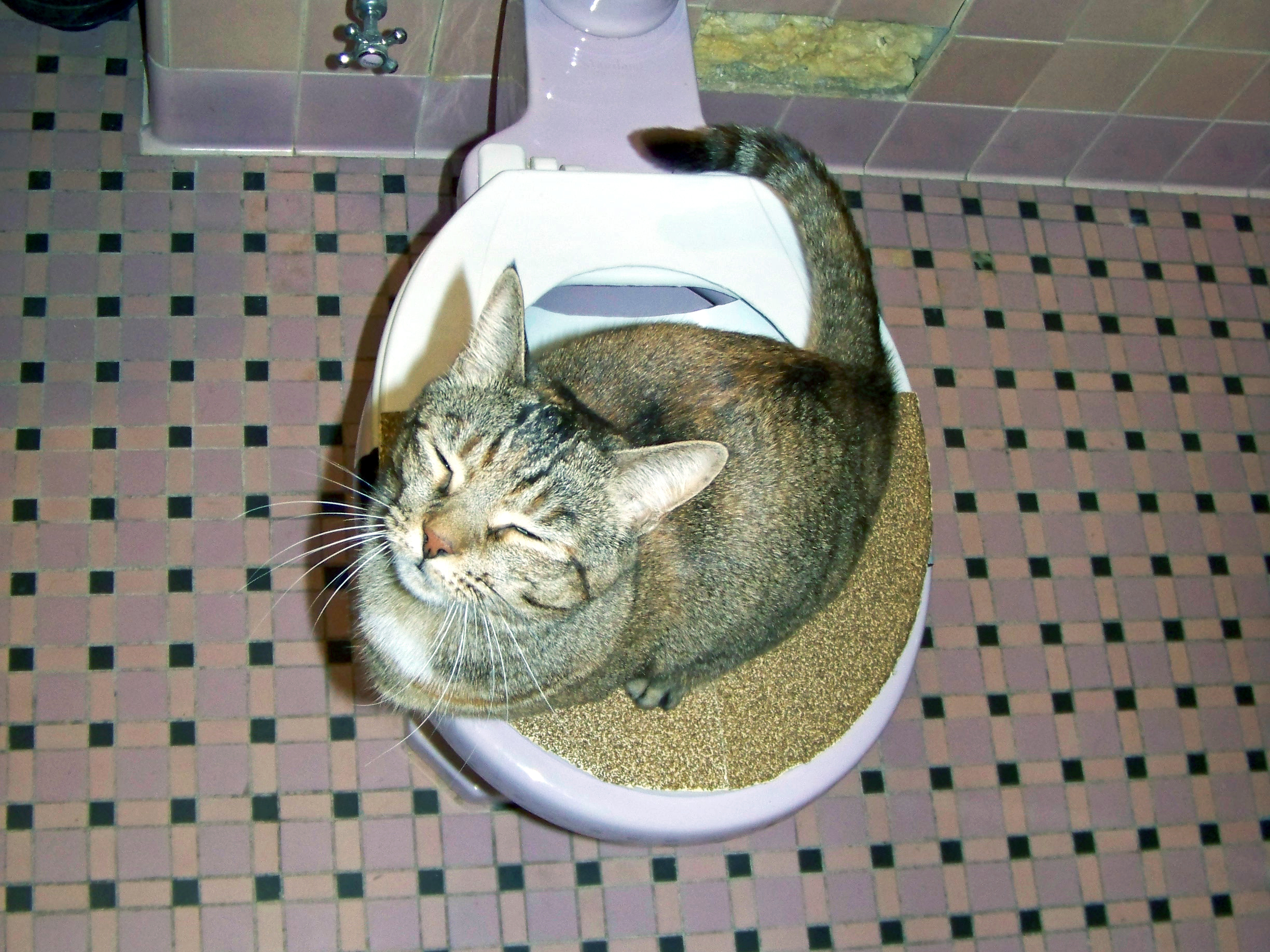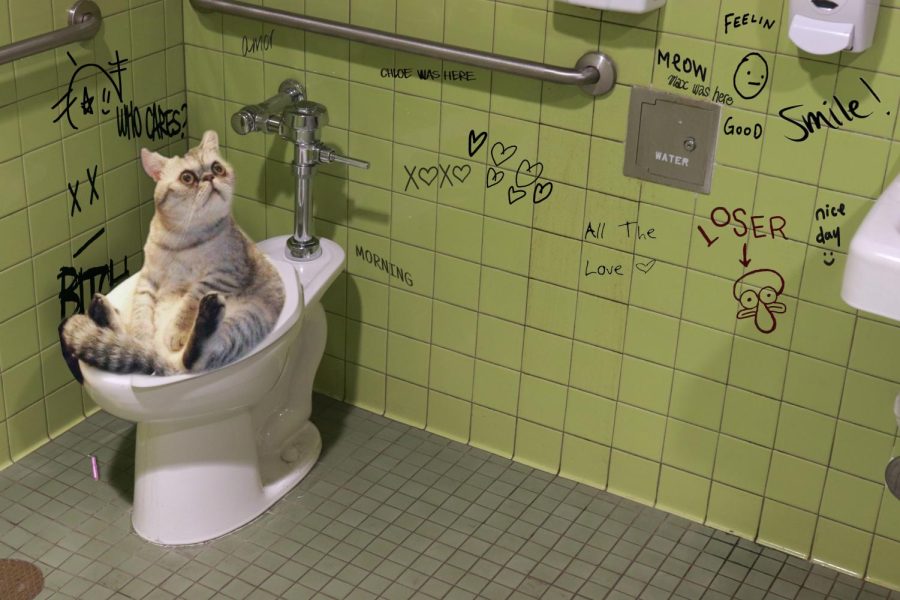Exploring the Risks of Flushing Animal Waste Down the Toilet
Exploring the Risks of Flushing Animal Waste Down the Toilet
Blog Article
Were you in search of help and advice on Can You Flush Dog and Cat Poo Down the Toilet??

When it concerns dealing with waste, specifically animal waste, many people frequently turn to the hassle-free choice of flushing it down the toilet. Nonetheless, this seemingly easy option can have major repercussions for the setting and public health. In this short article, we'll check out why flushing animal waste down the commode is a bad idea and give alternative techniques for correct disposal.
Introduction
Appropriate waste disposal is vital for maintaining environmental sustainability and public health. While it may appear safe to flush animal waste down the toilet, it can bring about various problems, both for the atmosphere and human health.
Threats of flushing pet waste
Ecological effect
Purging pet waste presents damaging microorganisms and pathogens into waterways, which can negatively affect marine ecosystems. These microorganisms can pollute water resources and damage aquatic life, interfering with fragile ecological communities.
Public health issues
Animal waste includes damaging germs such as E. coli and Salmonella, which can present significant wellness threats to human beings. Purging pet waste down the bathroom can pollute water materials, resulting in the spread of illness and infections.
Alternatives to flushing
Instead of flushing pet waste down the commode, there are numerous alternate disposal techniques that are much more environmentally friendly and sanitary.
Composting
Composting pet waste is a green means to throw away it. By composting, organic matter is broken down into nutrient-rich dirt, which can be utilized to fertilize yards and plants.
Land fill disposal
Dealing with animal waste in a land fill is one more option. While not as eco-friendly as composting, it is a much safer alternative to flushing, as it protects against the contamination of water resources.
Animal garbage disposal systems
There are specific animal garbage disposal systems offered that securely and hygienically throw away animal waste. These systems usually utilize enzymes to break down waste and eliminate odors.
Actions to correct animal garbage disposal
To ensure appropriate disposal of pet waste, adhere to these actions:
Scooping and landing waste
Frequently scoop and bag animal waste utilizing eco-friendly bags. This stops waste from infecting the atmosphere.
Making use of designated waste containers
Dispose of bagged pet waste in designated waste bins, such as garden compost bins or garbage dump containers. Avoid flushing it down the bathroom in all costs.
Cleaning up can and pet areas consistently
Routinely tidy can and pet dog areas to prevent the accumulation of waste and germs. Usage pet-safe cleansing items to keep hygiene.
Benefits of proper disposal techniques
Embracing appropriate disposal techniques for pet waste supplies numerous advantages:
Reduced environmental pollution
Proper disposal methods decrease the risk of environmental pollution, safeguarding waterways and ecosystems from contamination
Reduced risk of water contamination.
By avoiding flushing pet waste down the commode, the threat of water contamination is dramatically lowered, protecting public health.
Enhanced sanitation and hygiene
Correct disposal approaches advertise much better cleanliness and hygiene, developing a more secure atmosphere for both humans and pets.
Verdict
To conclude, flushing pet waste down the bathroom is dangerous to the atmosphere and public health. By adopting different disposal techniques and complying with proper waste monitoring methods, we can minimize the adverse effect of animal waste and add to a cleaner, healthier earth.
What To Do With Dog Poo – The Do's And Don'ts Of Disposing Of Faeces
Dog poo bins
Some councils provide dedicated dog waste bins in popular dog-walking areas that can take dog poo that has been bagged but you can legally dispose of dog waste in any public litter bin, as long as it is securely bagged. This also applies to your wheelie bin at home.
Do not flush
Water companies do not recommend flushing dog faeces down the toilet because certain parasites can survive the water processing treatment and are potentially harmful to humans. You should also never consider flushing dog poo that has been bagged down the toilet as the bags will not break down and instead create severe blockages in the sewage system.
In the woods
The Forestry Commission promotes a ‘stick and flick’ method for dealing with waste in the woods. This means finding a stick and using it to flick any poo from off the path so that it is out of the way of other walkers. You could also bury it as long as it is not in an area where there might be livestock.
Livestock
Parasites found in dog poo can be transmitted to livestock if they inadvertently eat infected faeces that has been left on grazing land. This could result in the death of sheep or abortion in cattle so you should always make sure you pick up your dog’s waste in fields where livestock could be present.

Routinely tidy can and pet dog areas to prevent the accumulation of waste and germs. Usage pet-safe cleansing items to keep hygiene.
Benefits of proper disposal techniques
Embracing appropriate disposal techniques for pet waste supplies numerous advantages:
Reduced environmental pollution
Proper disposal methods decrease the risk of environmental pollution, safeguarding waterways and ecosystems from contamination
Reduced risk of water contamination.
By avoiding flushing pet waste down the commode, the threat of water contamination is dramatically lowered, protecting public health.
Enhanced sanitation and hygiene
Correct disposal approaches advertise much better cleanliness and hygiene, developing a more secure atmosphere for both humans and pets.
Verdict
To conclude, flushing pet waste down the bathroom is dangerous to the atmosphere and public health. By adopting different disposal techniques and complying with proper waste monitoring methods, we can minimize the adverse effect of animal waste and add to a cleaner, healthier earth.
What To Do With Dog Poo – The Do's And Don'ts Of Disposing Of Faeces
Dog poo bins
Some councils provide dedicated dog waste bins in popular dog-walking areas that can take dog poo that has been bagged but you can legally dispose of dog waste in any public litter bin, as long as it is securely bagged. This also applies to your wheelie bin at home.
Do not flush
Water companies do not recommend flushing dog faeces down the toilet because certain parasites can survive the water processing treatment and are potentially harmful to humans. You should also never consider flushing dog poo that has been bagged down the toilet as the bags will not break down and instead create severe blockages in the sewage system.
In the woods
The Forestry Commission promotes a ‘stick and flick’ method for dealing with waste in the woods. This means finding a stick and using it to flick any poo from off the path so that it is out of the way of other walkers. You could also bury it as long as it is not in an area where there might be livestock.
Livestock
Parasites found in dog poo can be transmitted to livestock if they inadvertently eat infected faeces that has been left on grazing land. This could result in the death of sheep or abortion in cattle so you should always make sure you pick up your dog’s waste in fields where livestock could be present.

Do you appreciate reading up on 10 Things You Should Never Flush Down The Toilet? Try leaving a short review down the page. We'd be glad to see your thoughts about this write-up. In hopes that you come back again in the future. Appreciated our posting? Please share it. Help other people find it. I recognize the value of reading our article about Should you flush animal waste down the toilet.
Click Here Report this page